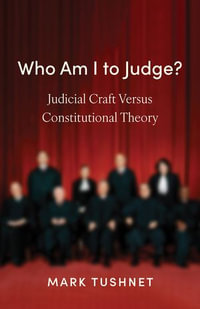
eTEXT
Regulatory Challenges of AI Governance in the Era of ChatGPT
By: Toriqul Islam
eText | 6 December 2024
At a Glance
eText
$254.52
Instant online reading in your Booktopia eTextbook Library *
Read online on
Not downloadable to your eReader or an app
Why choose an eTextbook?
Instant Access *
Purchase and read your book immediately
Read Aloud
Listen and follow along as Bookshelf reads to you
Study Tools
Built-in study tools like highlights and more
* eTextbooks are not downloadable to your eReader or an app and can be accessed via web browsers only. You must be connected to the internet and have no technical issues with your device or browser that could prevent the eTextbook from operating.
The increasing integration of artificial intelligence (AI), and particularly of large language models (LLMs) like ChatGPT, into human interactions raises significant ethical and social concerns across a broad spectrum of human activity. Therefore, it is important to use AI responsibly and ethically and to be critical of the information it generates. This book - the first comprehensive work to provide a structured framework for AI governance - focuses specifically on the regulatory challenges of LLMs like ChatGPT. It presents an extensive framework for understanding AI regulation, addressing its societal and ethical impacts, and exploring potential policy directions.
Through 11 meticulously researched chapters, the book examines AI's historical development, industry applications, socio-ethical concerns, and legal challenges. Advocating for a human-centric, risk-based regulatory approach, emphasising transparency, public participation, and ongoing monitoring, the book covers such aspects of AI and its governance as the following:
a comprehensive overview of the history and mechanics of AI;
widespread public misconceptions surrounding ChatGPT;
ethical considerations (e.g., misinformation, accountability, and transparency);
societal implications (e.g., job displacement, critical thinking, and malicious use);
privacy concerns;
intellectual property challenges;
healthcare application dilemmas;
interplay between LLMs and finance, and
cross-border regulatory challenges.
Throughout, the author identifies significant gaps in existing legal frameworks and explores potential policy directions to bridge these gaps.
The book offers invaluable insights and recommendations for policymakers, legal experts, academics, students, technologists, and anyone interested in AI governance. It underscores the need for a collaborative effort and meaningful dialogue among industry leaders, academia, and civil society worldwide to promote responsible and ethical development and use of AI for the benefit of humanity.
Read online on
ISBN: 9789403533575
ISBN-10: 9403533579
Published: 6th December 2024
Format: ePUB
Language: English
Publisher: Kluwer Law International B.V.























